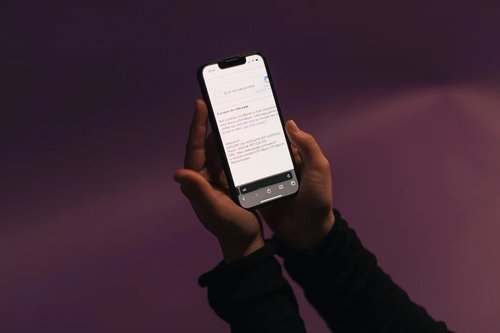Does the weather affect our productivity?
Dec 06, 2022
4 mins


Journaliste indépendante.
The weather is a pretty simple, straight-forward subject. As it pertains to work, it has probably saved you time and again when confronted with a dreaded coworker in the elevator (“It’s sunny today, isn’t it?”). However, you may not know the extent to which the weather can influence your behavior and productivity. Here’s a peek into the often overlooked effects of a rainy or sunny day at work.
Think back to last summer when you woke up to glorious rays of sunshine and sipped your coffee outside, contemplating the day ahead. You might have believed the beautiful weather would boost your motivation and productivity, as sunshine is generally associated with good moods and efficiency. However, this popular theory isn’t completely accurate in the workplace.
Francesca Gino, an associate professor at Harvard Business School, conducted research on the productivity of employees at a Japanese bank for two and a half years. She then correlated her data with weather statistics over the same time period. The result was clear: during the summer, productivity melted like snow in the sun. The drearier the days, the more overcast the weather, and the lower the visibility, the office workers were actually more productive. Conversely, the better the weather, the clearer and sunnier the skies, the less efficient the workers were.
Your initial beliefs about the summer and sunshine were not misguided, though. An abundance of natural light and vitamin D is good for morale. Unfortunately for your boss, this heightened mood doesn’t compensate for the social behavior that good weather inspires. Lazy summer days are often filled with long lunch breaks, more outdoor activities, and leaving the office early. In fact, according to the Los Angeles Times, a survey of Fortune 1000 companies by Virginia-based research and consulting firm CEB found that 42% of companies offer employees the chance to leave early on Fridays during the summer.
Moreover, a productivity survey by small-business phone service, Grasshopper showed 63% of the Americans polled admitted to leaving the office early during the summer months.
In light of this research, why do we still feel less efficient in winter? This phenomenon is related more to seasons and light than to the weather itself. Research in chronobiology supports the idea that our sleep needs and preferences change in winter. However, the constraints of office life are particularly inadequate during colder months. We should actually sleep more and work less, as our ancestors did. This “soporific” winter mode plays on our motivation and on our health in general.
In order to verify her results in the lab, Francesca Gino conducted experiments on her students at Harvard.
Gino’s team recruited 136 students who were asked to fill out a survey with the promise that they would be rewarded according to how quickly and accurately they completed the questions. Some took the survey on sunny days, others on rainy days, and a portion of those who took the survey on rainy days viewed images of sunny scenes and outdoor activities before starting the questionnaire. The latter students, upon seeing the good-weather images, proved to be (almost) as unproductive as the group who took the survey on a sunny day. The conclusion? More than the actual weather, it was the distraction created by the temptation of—and emotions elicited by—warm sunny days that led to decreased productivity.
Heatwave in the office
Not only does the sun impact our productivity, but hot temperatures do as well. A study by Lawrence Berkeley National Laboratory reveals high temperatures contribute to decreased efficiency.
Anant Sudarshan, director for South Asia at the University of Chicago’s Energy Policy Institute, and his team analyzed worker productivity in India, the world’s third-largest economy and one of the most exposed to the effects of climate change. They studied labor-intensive industries and highly automated ones. In labor-intensive industries, productivity dropped by up to 4% per degree when temperatures exceeded 80.6° F. In highly automated industries, which require less physical effort, productivity didn’t seem to be affected by temperature. Should we expect the same results in the West? Most likely.
On top of this, hot temperatures impact more than our productivity. Research by Ayushi Narayan, Ph.D. and Harvard economist, for PNAS, the Proceedings for the National Academy of Sciences, finds increased heat correlates with increased aggression, including discrimination and harassment.
Is air conditioning the solution? From an environmental point of view, no. From an efficiency point of view, partially. The same researchers were able to prove that air conditioning limits the drop in productivity, but does not prevent absenteeism. An increase of one degree in the average temperature over ten days heightens the probability that an employee would miss a day of work by 5%. We can assume these employees are not skipping work to enjoy the beach, but are instead trying to avoid public transportation, large crowds, and body odor mixed with the summer heat.
What can you do to limit the effects of the weather on your productivity? For starters, not everyone is affected in the same way. Some people are particularly sensitive to it, others less so. If you’re one of the unlucky ones who are affected by the winter blues, or on the other hand, if you have trouble concentrating as soon as the sun comes out, try to adapt your tasks or even your work time to the weather. Focus on more complex assignments on rainy days, and more creative projects on sunny days. Also, consider what boosts your morale in the winter. Is it working from the warmth of your home or seeing and interacting with your coworkers in the office? Lastly, don’t forget this tip from Francesca Gino’s experiments: Replace your summery desktop background with a beautiful autumn landscape or swap the photo of your spouse and kids laughing on a warm spring day at the park for their ski picture with mugs of hot chocolate in hand from last winter.
Translated by Lorraine PosthumaEdited by Jordan Nadler*
Photo: Welcome to the Jungle
Follow Welcome to the Jungle on Facebook, LinkedIn, and Instagram, and subscribe to our newsletter to get our latest articles every day!

More inspiration: Productivity & tools

Goal setting: How to bounce back when you feel like a failure
The big F word ... Failure. We all face it, but here’s how to make it your secret weapon for success.
Dec 18, 2024

Productivity boost: Why mental health outshines long hours
Long hours don’t equal better work. Discover how mental health support can unlock productivity and time efficiency in the workplace.
Nov 28, 2024

10 fun ways people are using AI at work
While many use AI for basic tasks like grammar checks or voice assistants, others are finding innovative ways to spice up their work days.
Nov 05, 2024

12 Slack habits that drive us crazy
Slack is a top messaging platform, but coworkers can misuse it. Over-tagging and endless messages can make it frustrating ...
Oct 16, 2024

10 CareerTok creators you should be following
Looking for career advice? CareerTok has quick tips from real experts on interviews and job offers.
Sep 25, 2024
The newsletter that does the job
Want to keep up with the latest articles? Twice a week you can receive stories, jobs, and tips in your inbox.

Looking for your next job?
Over 200,000 people have found a job with Welcome to the Jungle.
Explore jobs